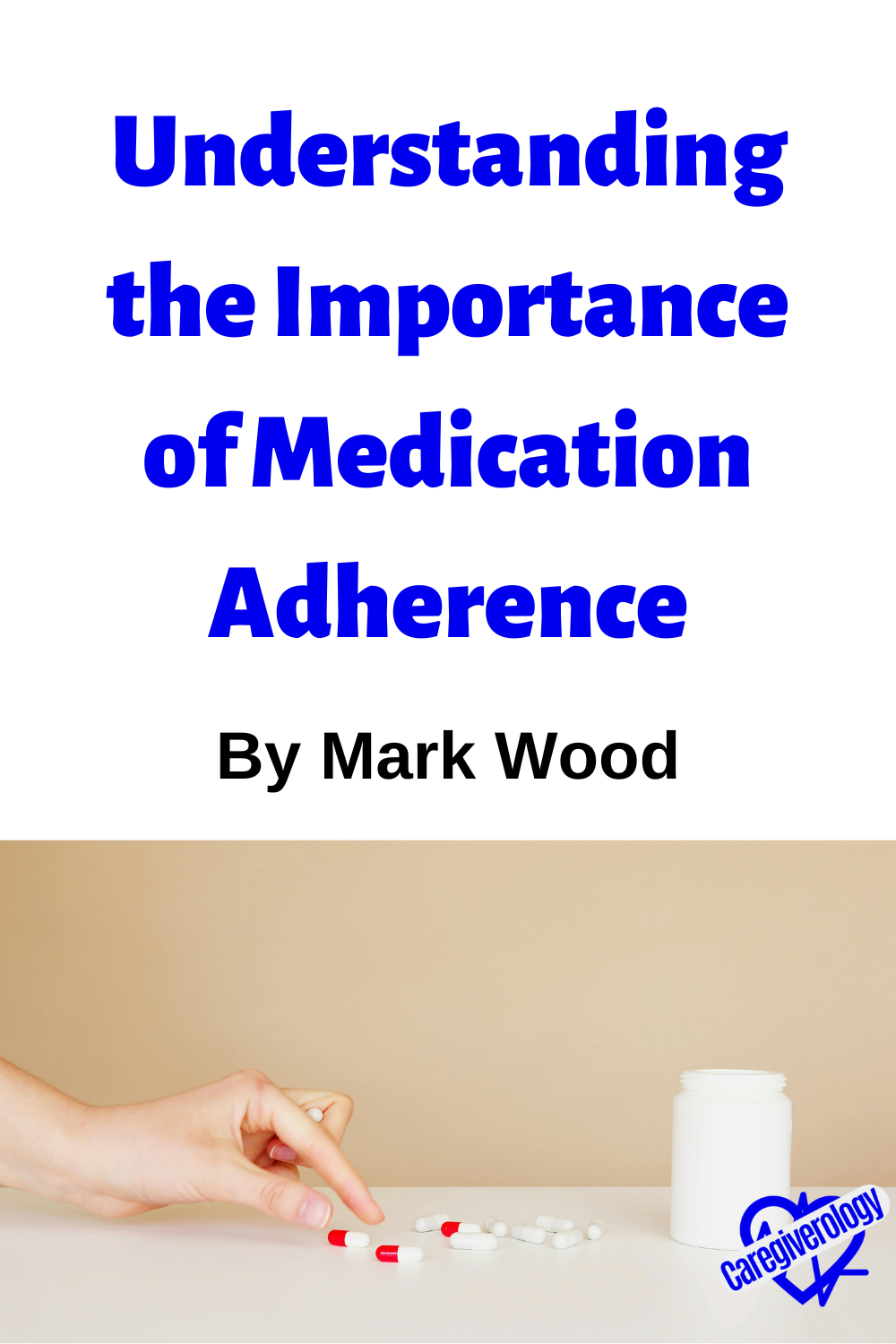Understanding the Importance of Medication Adherence

Medication adherence is extremely important for managing health conditions effectively, yet it remains one of the most significant challenges in healthcare today. Patients who follow their prescribed medication regimens experience better health outcomes, while those who do not adhere increase their risk for complications, hospitalizations, and even mortality. Understanding and improving medication adherence can significantly enhance patient care and reduce overall healthcare costs. In this blog, we will discuss the importance of adherence and strategies to improve it, providing actionable insights for both patients and healthcare providers.
Defining Impact Meds Barriers Tech Healthcare Education Regimens Support Feedback Programs Routine Conclusion
Defining Medication Adherence
Medication adherence involves taking medications exactly as prescribed by a healthcare provider, including the correct dose, at the prescribed times, and for the intended duration. It's critical for the effectiveness of treatment, particularly for chronic diseases like diabetes, hypertension, and heart disease. Non-adherence can be either intentional, where patients choose not to follow the treatment plan, or unintentional, where they forget or are unable to manage their medications properly.
Impact on Health Outcomes
The consequences of poor medication adherence are profound. Non-adherence can lead to disease progression, reduced quality of life, and unnecessary complications that could have been prevented with proper medication management. For example, patients with high blood pressure who do not take their medications as prescribed have a higher risk of suffering a heart attack or stroke. The statistics are clear: adhering to prescribed medications can not only improve life quality but also save lives.
The Role of Medication Synchronization
One effective strategy to improve adherence is through medication synchronization, aka med synchronization or med sync, programs offered by many pharmacies. These programs align the refill dates of a patient's medications so that all prescriptions are renewed at the same time each month. This reduces the complexity of managing multiple medications with different refill schedules and significantly enhances adherence by simplifying the patient's regimen.
Barriers to Adherence
Several barriers can prevent patients from following their medication regimens. These include the complexity of the medication schedules, the occurrence of side effects, the cost of medication, and forgetfulness, especially in elderly patients or those with cognitive impairments. Psychological barriers, such as denial of the severity of the condition or fears about treatment dependency, also play a role. Identifying these barriers is the first step in addressing them effectively.
Technology and Adherence
Technology offers innovative solutions to help overcome barriers to medication adherence. Apps that remind patients when to take their medication, digital pillboxes that alert patients when it’s time for a dose, and smart medical devices that can track and record medication usage are transforming the management of chronic diseases. These tools not only remind patients about their medications but also provide valuable data to healthcare providers to monitor adherence and adjust treatments as necessary.
Role of Healthcare Providers
Healthcare providers have a fundamental role in supporting medication adherence. They must ensure clear communication about the importance of adherence and the potential consequences of non-adherence. Regular follow-ups and personalized interactions help build trust and encourage patients to discuss any issues they may encounter with their treatment plans. Additionally, providers can use patient education as a tool to improve understanding and engagement with prescribed therapies.
Patient Education and Counseling
Educating patients about the importance of sticking to their prescribed medication regimen is a critical factor in promoting adherence. Family doctors and pharmacists should provide clear, understandable explanations about how medications work and why timing and consistency matter. Counseling sessions can address any concerns patients might have about side effects or interactions with other drugs. Effective education strategies involve not only giving information but also engaging patients in discussions that reinforce the importance of their role in managing their health.
Simplifying Medication Regimens
Complex medication schedules can be a significant barrier to proper adherence. Healthcare providers can aid their patients by simplifying these regimens wherever possible. This might include prescribing medications that require fewer daily doses or switching to combination drugs that address multiple symptoms at once. Simplifying a regimen can reduce confusion and make it easier for patients to remember and follow their treatment plans.
Community and Family Support
Support from family members and the community can greatly influence a patient's ability to manage their medication regimen effectively. Healthcare providers can encourage families to be part of the treatment process, perhaps by attending appointments or helping to manage medication schedules at home. Community groups and online forums can also provide additional support, offering a network of encouragement and sharing practical tips for coping with common challenges.
Monitoring and Feedback
Regular monitoring of medication adherence and providing feedback to patients can significantly improve compliance. Healthcare providers can use follow-up appointments to discuss adherence, adjust medications if necessary, and address any new issues. Some clinics employ electronic monitoring systems that track when patients take their medications, providing a clear picture of their adherence patterns. Feedback based on this data can help motivate patients and guide further education or intervention.
Financial Assistance Programs
The cost of medications can often hinder a patient’s ability to adhere to their treatment plan. Healthcare providers should be aware of financial assistance programs and be prepared to help patients access these resources. Many pharmaceutical companies offer discounts or rebates, and there are numerous government and private programs designed to help cover the cost of prescription drugs for those who qualify.
Importance of Routine
Establishing a routine can play a vital role in improving medication adherence. Healthcare providers can assist patients in integrating medication intake into their daily schedules in a way that feels natural and manageable. For example, linking medication times with regular activities such as meals or bedtime can help form habits that are easier to maintain over time.
Conclusion
Successfully managing health conditions with prescribed medications is a collaborative effort between patients and healthcare providers. By adopting strategies that address the various aspects of medication adherence, from simplifying regimens to involving family support and utilizing financial resources, healthcare providers can significantly improve their patients' health outcomes. Encouraging routine, providing education, and regular monitoring are all essential elements in fostering an environment where patients are more likely to stick to their treatment plans. Ultimately, improving adherence not only benefits the individual patient but also contributes to broader public health goals by reducing complications and healthcare costs associated with poorly managed conditions.
Thank you Mark Wood for contributing this article.
Guest Articles Written for Caregiverology
From Understanding the Importance of Medication Adherence to Home
Recent Articles
-
Common Truck Crash Injuries and Legal Remedies - Caregiverology
Jul 19, 25 10:49 AM
Known for its sun-drenched beaches, vibrant arts scene, and bustling maritime industry, Fort Lauderdale is a city that sees heavy traffic both on its roads and at its busy port. Unfortunately, with th… -
Why Expert Legal Help Matters After Serious Injury - Caregiverology
Jul 19, 25 10:35 AM
In Houston, over 67,600 car crashes occurred in 2023, resulting in 290 fatalities and 1,612 serious injuries. That’s roughly 185 accidents every day. -
How Life Care Planners Support Injury Recovery - Caregiverology
Jul 19, 25 10:18 AM
In Los Angeles, life care planners play a vital role in supporting injury recovery, especially for individuals facing catastrophic injuries such as traumatic brain injuries or spinal cord damage.





New! Comments
Have something to say about what you just read? Leave a comment in the box below.